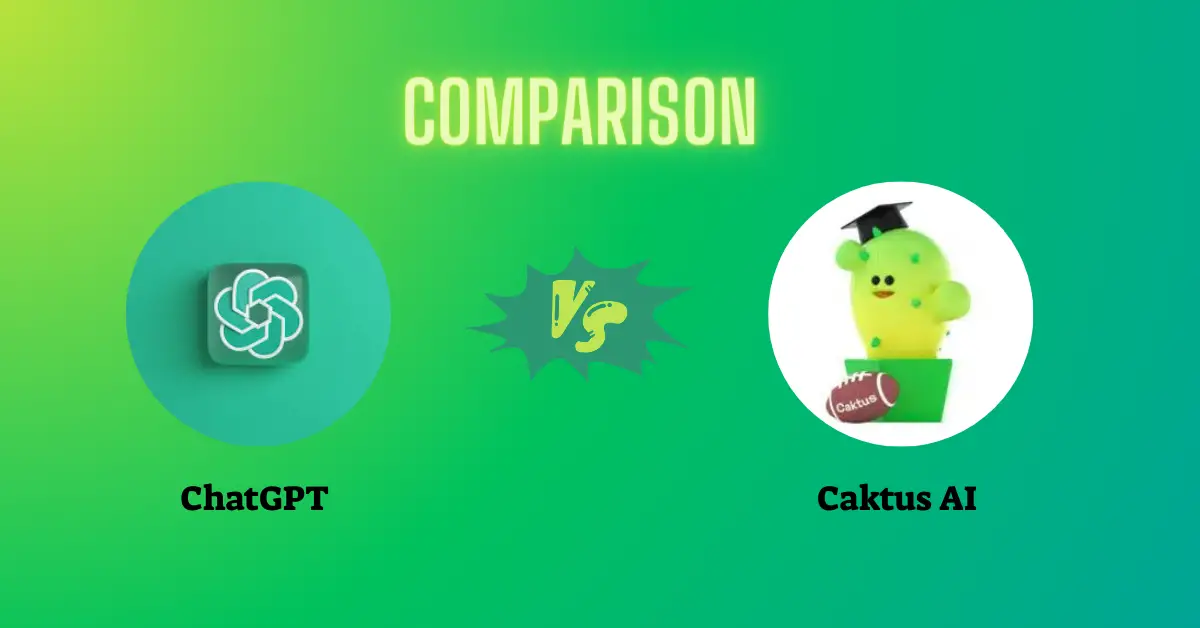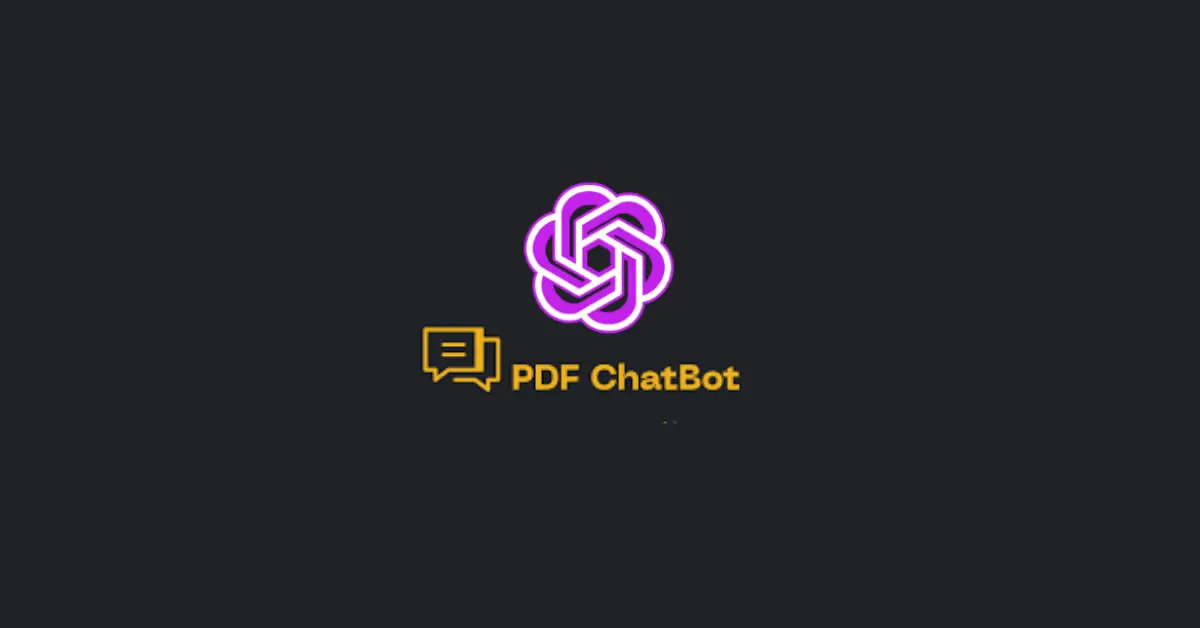Best ChatGPT Prompts For SEO – ChatGPT Prompts Series Part 1
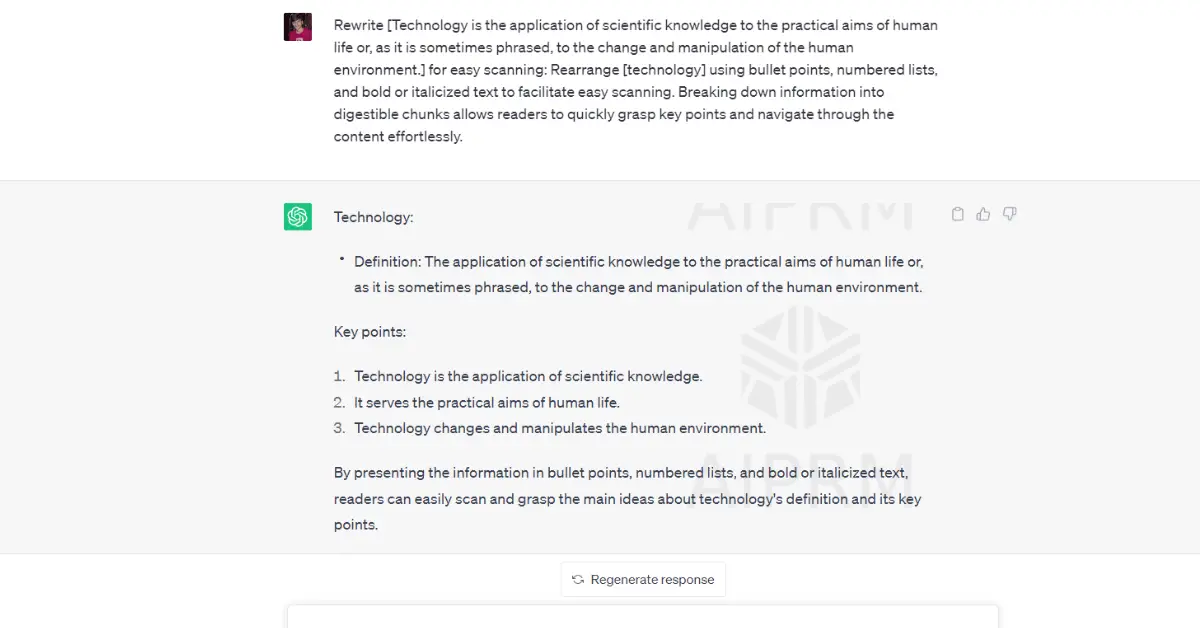
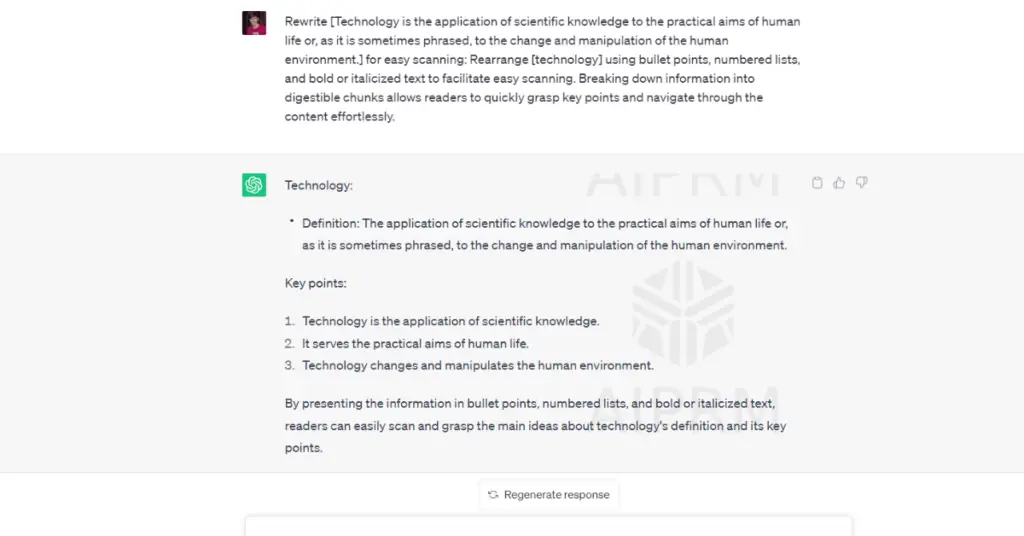
Nowadays, the popularity of ChatGPT is skyrocketing. Marketers, SEO professionals, content writers, businesses, product managers, and others are all leveraging the power of ChatGPT to streamline their workflows.
ChatGPT has become an essential tool for SEO professionals. Its advanced AI capabilities allow it to generate human-like responses, making it invaluable for SEO tasks.
Between February and May, ChatGPT has amassed a substantial user base, with its user count growing each day. However, many ChatGPT users face challenges when using the platform. The key lies in crafting effective and easy-to-understand prompts to extract accurate information from ChatGPT and other AI language models. Unfortunately, not everyone is well-versed in creating such prompts, especially users from diverse fields.
To address this issue, we are launching our series of Best ChatGPT Prompts. In this series, we will explore ChatGPT prompts tailored to users from various fields who utilize ChatGPT but struggle with prompt creation.
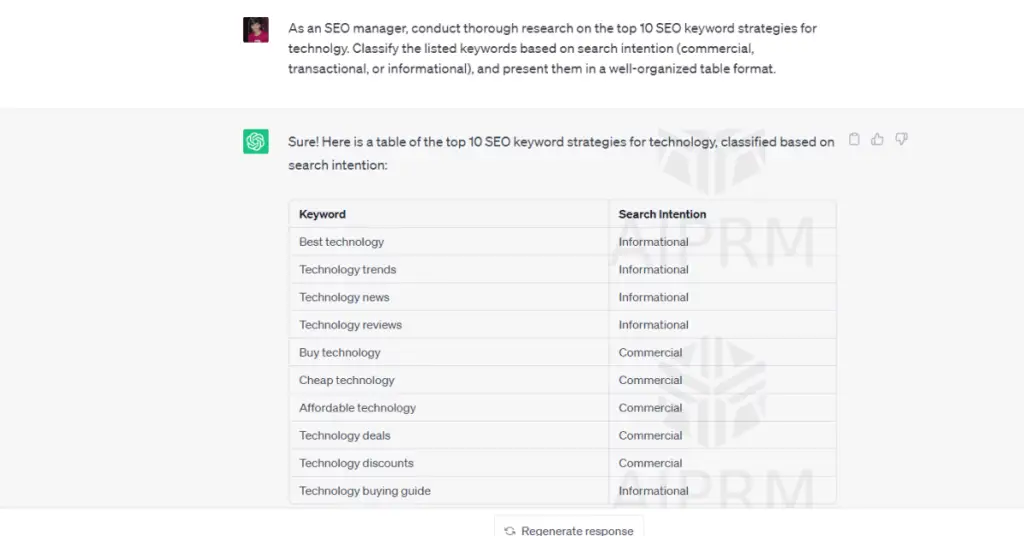
For this particular article, we will focus on ChatGPT’s best prompts for the SEO field. These prompts are essential for SEO professionals who aim to unlock the full potential of ChatGPT in their SEO endeavors.
If you are not from the SEO field, fret not! We have plans to cover other fields as well, providing you with the finest ChatGPT prompts to enhance your workflow and transform you into a ChatGPT pro.
Stay updated by joining our newsletter or following us on social media groups. Don’t miss out on the latest insights and prompts to supercharge your ChatGPT experience.
Table of Contents
Why Use ChatGPT for SEO?
ChatGPT has emerged as a powerful tool for SEO professionals, offering numerous benefits that make it a valuable asset in the field. Here are some reasons why you should consider using ChatGPT for your SEO endeavors:
- Natural and Human-Like Responses: ChatGPT’s advanced AI capabilities enable it to generate responses that closely resemble human language. This means you can have natural conversations and obtain more engaging and informative content for your SEO efforts.
- Enhanced Efficiency: By leveraging ChatGPT, SEO professionals can automate certain tasks and streamline their workflow. The AI-powered prompts and responses provided by ChatGPT can help you save time and effort in generating relevant and optimized content.
- Diverse Applications: ChatGPT can be used for a wide range of SEO-related tasks. Whether it’s generating content ideas, conducting keyword research, or crafting compelling meta descriptions, ChatGPT can assist you in various aspects of SEO optimization.
- Access to Knowledge and Insights: ChatGPT has access to vast amounts of data and information, which it utilizes to provide accurate and valuable insights. By tapping into this knowledge base, you can gain valuable SEO recommendations, best practices, and industry insights to improve your strategies.
- Continuous Learning: As an AI model, ChatGPT is constantly learning and evolving. It learns from its interactions with users and adapts to provide more refined and accurate responses over time. This means you can benefit from ongoing improvements and updates as you continue to utilize ChatGPT for your SEO needs.
Best ChatGPT Prompts for SEO
ChatGPT Prompts for Research Keyword
Discovering the perfect keywords can often pose a challenge in the realm of SEO. To ease this process, seeking assistance from ChatGPT through our carefully crafted prompts can prove beneficial.
- Imagine you’re a content marketer, and your goal is to find long-tail, high-volume, low-difficulty keywords for [topic of interest]. Conduct keyword research as if you were targeting your content towards a specific audience, and provide a list of these keywords.
- Request a table from a keyword strategist that includes the top competitors in the ‘Topic’ niche along with their corresponding URLs. This curated list will serve as valuable insight for analyzing competition and identifying potential strategies.
- Assume the role of an SEO expert equipped with accurate and detailed keyword information. Create a list of 5 SEO keywords that are relevant to a specific [blog post section[. These keywords should align with the content’s focus and target the intended audience effectively.
- As an SEO manager, conduct thorough research on the top 10 SEO keyword strategies for [topic]. Classify the listed keywords based on search intention (commercial, transactional, or informational), and present them in a well-organized table format.
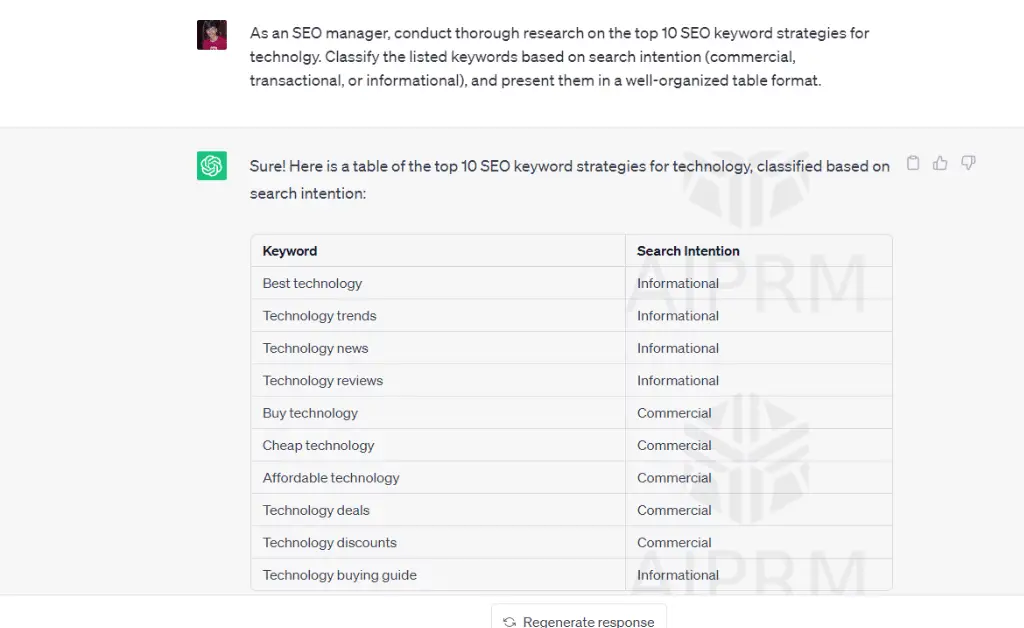
- Take on the role of a content strategist and compile a comprehensive list of frequently asked questions (FAQs) about [topic]. These FAQs should be relevant and valuable to newcomers in the field, providing insightful information and addressing common queries.
- Imagine you’re a keyword researcher focusing on listicle content. Generate a list of listicle content keywords specifically tailored to the [topic]. These keywords should be suitable for creating engaging and informative list-style articles.
- In your capacity as an online marketing manager, create a list of broad topics that are relevant to [topic]. Expand each topic by adding a list of phrases commonly used by your target customers. This will help in refining your content and targeting specific search queries effectively.
ChatGPT Prompts for Content Improvement
ChatGPT prompts for content improvement enable you to enhance various aspects of your writing, including style, structure, information quality, and search engine optimization. By leveraging this powerful AI tool, you can elevate the effectiveness and impact of your content, providing a better experience for your audience.
- Rewrite [text] and incorporate headings and subheadings: Break up the content into logical sections using headings and subheadings that include the keyword [keyword].
- Paraphrase [text] using active voice and short sentences: Restructure the content using active voice and shorter sentences to enhance readability for the [target audience] in the context of [keyword]. Active voice adds clarity and directness, while concise sentences keep the content concise and to the point.
- Add a call-to-action (CTA) to encourage reader action: Enhance [text] by including a compelling call-to-action at the end, urging readers to take a specific action. Whether it’s signing up for a newsletter, making a purchase, or engaging further with the content, a clear CTA motivates readers to take the next step.
- Incorporate relevant quotes and statistics: Strengthen [text] by including relevant quotes and statistics from reliable sources. This adds credibility to the content and supports your arguments, making it more trustworthy and compelling for readers.
- Paraphrase [text] using anecdotes and storytelling techniques: Transform [text] by infusing anecdotes and employing storytelling techniques. These narrative elements captivate readers’ attention, making the content more engaging, relatable, and memorable.
- Improve [text] by infusing humor (if appropriate): Injecting appropriate humor can make the content more enjoyable to read. Consider incorporating light-hearted anecdotes, witty remarks, or playful language where suitable to create a positive and entertaining reading experience.
- Proofread [text] for errors: Conduct a thorough proofreading of [text] to eliminate any typos, grammatical errors, or other mistakes. A well-polished piece of content enhances professionalism and ensures a seamless reading experience.
- Rewrite [text] for easy scanning: Rearrange [text] using bullet points, numbered lists, and bold or italicized text to facilitate easy scanning. Breaking down information into digestible chunks allows readers to quickly grasp key points and navigate through the content effortlessly.
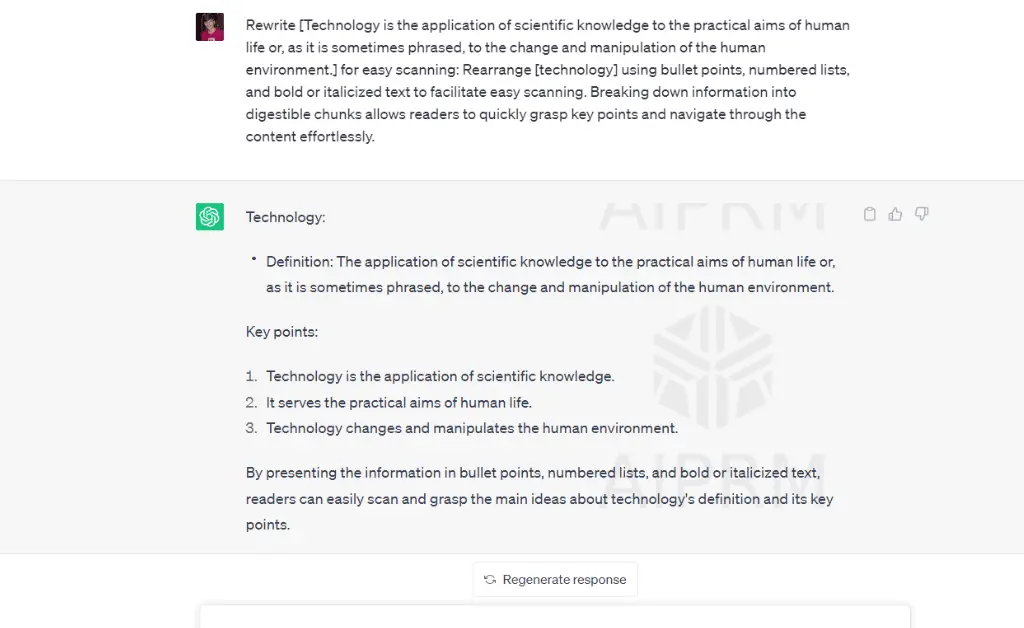
- Encourage reader engagement: Conclude [text] by inviting reader engagement. Pose thought-provoking questions or encourage readers to share their thoughts and comments, fostering a sense of community and interactivity.
ChatGPT Prompts for Copywriting
Utilizing ChatGPT prompts for copywriting empowers you to explore new ideas, refine your messaging, overcome objections, experiment with different tones, and structure your copy for maximum impact. By leveraging the capabilities of this powerful AI tool, you can elevate your copywriting skills and create compelling content that engages and persuades your audience.
- As an accomplished copywriter, develop a well-structured and SEO-optimized blog post outline for the targeted keyword [X], catering to the [X] audience. Maintain a conversational tone throughout the article and aim for a desired word count of 1500-2000 words.
- Suppose you’re a content marketer with expertise in SEO. Craft an outline for an engaging blog post that compares and contrasts various products or services related to the keyword [X]. Keep the tone neutral and strive for a desired length of 1000-1500 words.
- In your role as a freelance writer, create an elaborate blog post outline highlighting the unique features and benefits of [X]. Tailor the content to captivate and persuade [product] enthusiasts, aiming for a persuasive tone and a desired word count of 1500-2000 words.
- Leverage your skills as a technical writer well-versed in SEO to compose a detailed blog post outline providing a step-by-step guide on how to use [X]. Targeted at beginners, adopt a friendly and helpful tone while aiming for a desired length of 800-1000 words.
- Assume the role of a content marketing specialist and design a comprehensive blog post outline offering valuable tips and tricks for [X]. Engage with DIY enthusiasts using a conversational tone and aim for a desired word count of 1200-1500 words.
- Imagine you’re a web copywriter tasked with creating engaging website content for a technology company. Write a captivating homepage copy that showcases the company’s innovative solutions, expertise, and commitment to customer satisfaction.
- Take on the role of a YouTube video scriptwriter for a fitness brand. Create an energetic and motivational script that encourages viewers to embrace an active lifestyle, highlighting the brand’s products as essential tools for achieving fitness goals.
- Assume the position of a copywriter for a startup company in the food industry. Craft a compelling “About Us” page that communicates the company’s mission, values, and unique approach to delivering high-quality and sustainable food products.
- Put yourself in the shoes of a blogger specializing in personal finance. Write an informative and actionable blog post about effective budgeting strategies, providing practical tips and advice to help readers achieve their financial goals.
- Imagine you’re a content creator for a travel website. Develop an enticing destination guide for a popular tourist location, combining vivid descriptions, insider tips, and captivating storytelling to inspire readers to explore the destination.
- Generate a table listing the primary ideas to be covered in a blog post about [subject]. This will aid in organizing the content and presenting a clear structure for the article.
- For a blog post centered around [subject], outline the crucial elements of a detailed guide. Adopt the perspective of an experienced content writer and ensure the outline encompasses all necessary components to provide a comprehensive resource.
- Create seven catchy and concise subheadings for a blog article titled [title]. Each subheading should not exceed 60 characters and should entice readers while giving them a glimpse of the content.
- Utilizing a two-level heading structure, outline the key sections and subtopics for a blog article titled [title]. Consider the target audience and aim to deliver an informative and engaging piece of content.
- Act as a social media content writer and critically analyze the provided outline [outline] for a blog post. Make necessary additions or removals to enhance the engagement and informativeness of the article.
- Imagine you’re an SEO copywriter tasked with creating a video advertisement promoting sustainability and waste reduction. Write a script that highlights the benefits of these practices for eco-conscious customers. Ensure the tone is knowledgeable, appealing, informative, and persuasive.
- Take on the role of a web content specialist responsible for drafting an Instagram advertisement aimed at fashion-conscious customers. Craft a script that exudes confidence and showcases how the product keeps individuals updated with the latest fashion trends, helping them look their best.
- Assume the position of a web content manager in charge of creating a YouTube video ad targeting pet owners. Develop a script with a friendly tone that emphasizes the benefits of using the product, offering comfort and better care for furry friends.
- Put yourself in the shoes of a blogger involved in a lead-generation campaign targeting business-oriented customers. Write a professional and persuasive email template that highlights how the product [X] improves productivity and efficiency in the workplace.
Wrap Up
Utilizing ChatGPT for SEO can enhance your productivity, provide valuable insights, and enable you to create high-quality, optimized content. With its natural language capabilities and continuous learning, ChatGPT proves to be an indispensable tool for SEO professionals seeking to stay ahead in the ever-evolving digital landscape.
FAQ’s
-
Can ChatGPT prompts help with technical SEO issues?
ChatGPT prompts can provide some guidance on technical SEO issues, but it’s important to note that they might not be as reliable as consulting with an experienced SEO professional or conducting a thorough technical audit. For complex technical issues, it’s best to seek expert advice or use chat GPT prompts as a starting point for further investigation.
-
What are some examples of ChatGPT prompts for SEO?
Here are a few examples of ChatGPT prompts for SEO:
“What are the best on-page SEO techniques for optimizing my website?”
“How can I improve my website’s organic search rankings?”
“What are the key factors to consider for mobile SEO optimization?”
“Can you suggest some effective link-building strategies for improving domain authority?”


